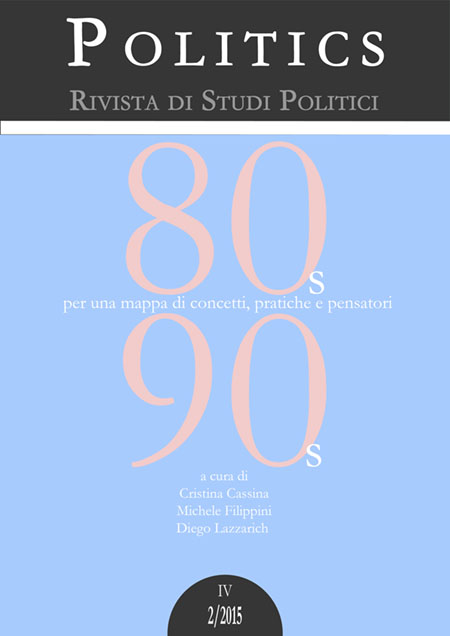Gli studi di Ragion di Stato negli ultimi due decenni del ventesimo secolo: motivazioni e considerazioni critiche
Abstract
The expression “Reason of State” belongs to the language and the political culture of the late Renaissance period. Still today this expression is commonly used to mean recourse to force or, to exceptional instruments on the part of a subject holding political power who acts out of the need to keep personal command and to guarantee law and order within society. Raison d'État, Ragion di Stato, Razon de Estado, Staatsräson: from the end of the sixteenth century onwards, the various European languages translate this expression, with the intention of applying the meanings which it contains to the particular regional situations. The article presents the reasons and the relevance of a series of studies published between the ’80s and the ’90s that marked a new sensibility toward Reason of State, diverging from the classic definition by Friedrich Meinecke of Ration status as machtsstaat. The apparent crisis of democratic societies and the changing role of the State in the post ’89 global order are two of the main feature of a historiographical and intellectual effort to understand the politics of globalization.Downloads
Download data is not yet available.
Pubblicato
2015-12-01
Sezione
Articoli
Copyright (c) 2016 Politics. Rivista di Studi Politici

This work is licensed under a Creative Commons Attribution-NonCommercial-ShareAlike 4.0 International License.
In conformità col Public Knowledge Project, la rivista accoglie l'uso di una licenza CREATIVE COMMONS license CC Attribuzione - Non commerciale - Condividi allo stesso modo 4.0
http://creativecommons.org/licenses/by-nc-sa/4.0

